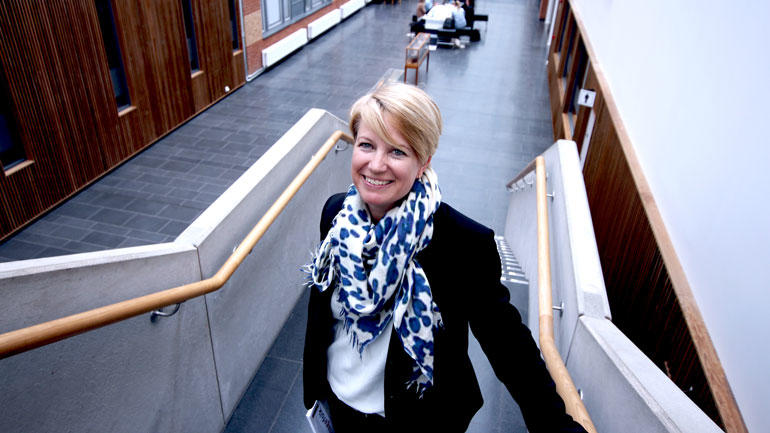Summary of the thesis
This article-based thesis presents the findings of a qualitative case study that provide a theoretically informed and empirically grounded description of regular classroom practices and how teachers anticipate and draw on the everyday and informal experiences of students as resources for academic learning.
In terms of practical policy, education in the digital age should foster the development of in-depth learning, information management, critical thinking, and the ability to apply everyday and informal experience and knowledge to solve complex and interdisciplinary problems. Making use of students’ everyday and informal experiences and tools as resources for academic learning is considered a key tool in educational reforms that might enable pedagogy capable of bringing the everyday world into the classroom and contributing to an academically relevant educational practice for the 21st century. However, the review of existing international research literature in this study illustrates that teachers’ attempts to incorporate students’ outside experiences and knowledge into more academic learning practices typically fail to exploit students’ own expertise, knowledge, and tools. When students’ experiences from informal learning activities are invited into educational purposes, the discrepancies in the views of learning (i.e., what is considered relevant or accountable) and the goals of the different disciplinary practices implicitly lead to tensions and practical challenges. This contradiction between different views and objectives of approaches to learning reflected in the organization of informal and formal learning practices calls for a closer look at how connecting everyday and academic learning practices are played out in regular classroom interactions. While contradictory practices in education are not unusual, in this case, it seems important to gain better knowledge of how these practices of connecting everyday and academic learning are played out over time and, in particular, how teachers’ frame and anticipate learning activities when drawing on everyday and informal experiences of students in classroom interactions. The findings of the case study are reported in three research articles.
Study 1 explored how teachers’ framing of learning activities opens and closes opportunities for students to position themselves to co-construct meaning. The findings illuminated that whole-class introductions are characterized by teacher-led talk that invites students’ to be active contributors to a limited extent when engaging with their own everyday and informal experience. At an overall level, the findings addressed how teachers framed opportunities (in an expansive or bounded manner) to make use of everyday and informal experiences of students as (1) tools to make use of student’s authentic experiences, positioning students as active contributors; (2) resources for disciplinary recitations of authoritative knowledge, offering students opportunities to build on someone else’s knowledge; and (3) “surrogate resources,” making it difficult for students to recognize “the imagined everyday experience” as a learning resource. The study illustrates the complexities of connecting everyday and academic learning practices.
Study 2 documents the teacher’s dilemma of framing students’ digital engagement in their leisure time as a resource for academic learning, which expands student practices and creates tensions within and across the institutional framing of schooling. At an overall level, the findings displayed that when the students’ experiences and knowledge of engaging with playful digital practices in informal learning activities are invited into highly regulated educational purposes, the discrepancies in the views of learning and the goals of the disciplinary practice lead to tensions and practical challenges. The study also displays that when the teacher frames task and digital tools as part of disciplinary science teaching but contextualizes them in everyday and informal contexts, both the teacher and students struggle to negotiate accountable ways of engaging in the new practice. The study suggests the teacher’s vital role in framing ways of engaging with new tools and tasks within the layers of accountable practices.
Study 3 explores how a teacher made use of a concrete material from her kitchen cupboard as a contextual resource for a problem-based learning activity. The study illustrates how a teacher invited students to articulate and recontextualize similarities and differences in everyday and academic learning practices. It also illustrates how the material tool opened for sophisticated thinking, which was not possible without the material available. It displayed a tension between context-bound resources, such as the sense of taste and sight, which allowed for exploration and student engagement, and more context-dense resources, such as a scientific result table written at the blackboard, which seemed to privilege academic forms of interactions. The study suggests the potential of making use of the meaning of materiality to promote academically productive classroom talk.
The study methodologically contributes to the field by providing a longitudinal research design that enables me to generate knowledge of how connecting everyday and academic processes are played out over time and how teachers and students engage in these particular learning activities in classroom interactions. It theoretically contributes to the field by presenting a theory-based analytical framework that advances into empirically grounded categories of classroom interactions over the course of the study and by showing, in particular, how teachers frame and constitute learning activities by drawing on the everyday and informal experiences of students in regular classroom practices.
The study is relevant in the way it offers theoretically informed and empirically grounded descriptions of the complexity of inviting the everyday experiences of students as resources for academic learning. This enables the study to contribute with new knowledge on how the layers of accountable practices within and across regular classroom practices seem to play an important role when challenges emerge as teachers encourage the use of experiences, tools, and media practices that are contextualized and framed differently.
